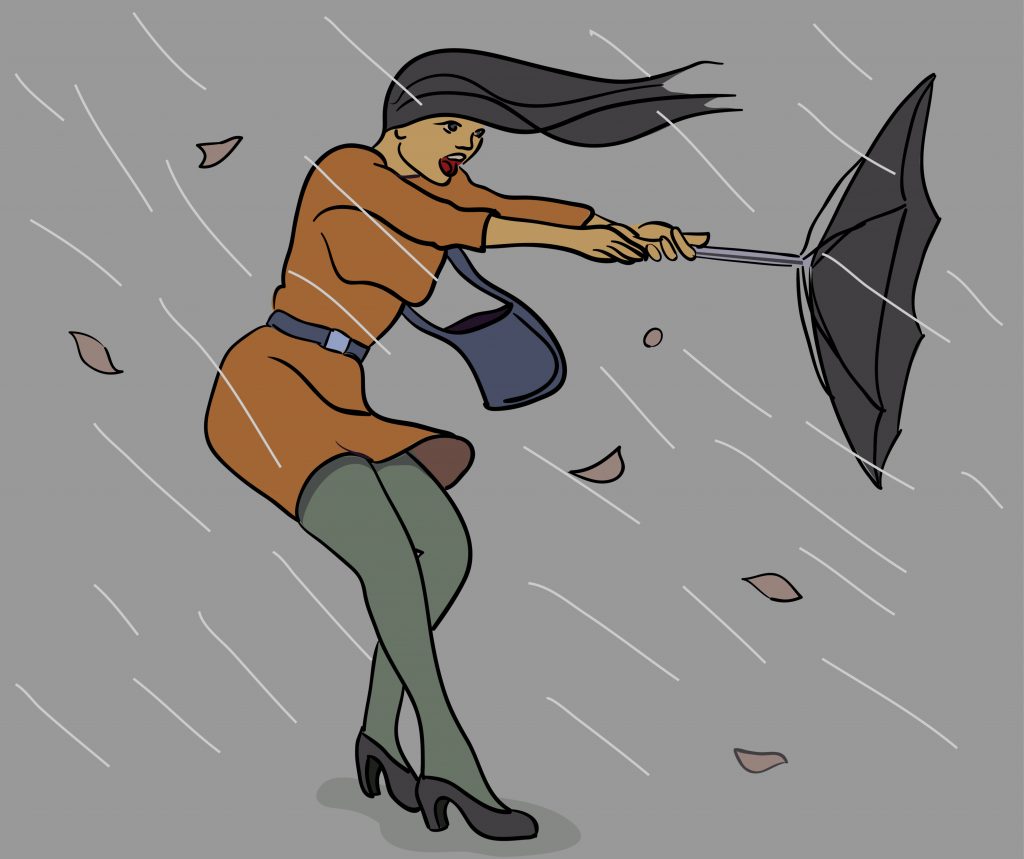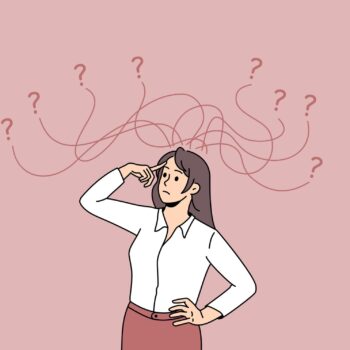Being an Active Participant in Grief (aka Intentionally Grieving)
/ Understanding Grief : Litsa
For further articles on these topics:
Grieving is a verb, like walking or talking or roaring or dancing or building. But when people talk about grieving, it often sounds different than other verbs. I’m grieving. With most verbs, there is something conscious or deliberate in the action. If I am walking, we have a sense that I made the decision to walk – I made an effort and engaged in the deed. Even ‘state verbs’, like to love, hate, want, believe, be, hear, and suspect, aren’t passive. And yet when we say to ourselves “I’m grieving”, the action seems to dissolve. Rather than conveying “I’m actively grieving” there can be a passivity in the word. As though grieving is letting something happen to us.
I suspect that we often conceptualize “grieving” to simply mean “existing in a state of sadness/yearning/whatever other griefy emotional state comes to mind”. Considering the absolute wrecking ball that is early grief, this makes sense. It does feel like something that happens to us, tearing us apart physically, emotionally, and spiritually as we just try to keep breathing.
But even in these earliest days, when it feels like there is no agency in our grieving, a closer look shows something different. Every day we make small but active choices. Every day we impact our own grief.
Whether the loss is a death, a chronic illness, an estrangement, an addiction, or anything else, each step forward is a step that wouldn't have existed if that loss hasn't happened. We are existing in a world that didn't and couldn't exist before our loss. We are not the people we were before our losses. As Heraclitus famously said,
"No man ever steps in the same river twice, for it is not the same river and he is not the same man.”
Heraclitus
No matter how passive it sounds or feels, no matter how dense the fog of grief, living through each moment in grief is a new and creative act. It is an act of rebuilding a self and a world that has been shattered.
Nope. No Thanks. Sounds Like Abstract Hooey. I Don't Relate to Active Grieving.
Okay, I can hear some of the groans already - a chorus of, "Nothing creative is happening here. I'm not rebuilding. Grief is happening to me and I'm just surviving it".
I know that words like 'active' and 'intentional' coupled with 'grieving' can feel alienating on the surface. But grief doesn’t just happen to us. We are active participants in our own grief, whether we like it or not. E
The Act of Actively Grieving
William James said, "When you have to make a choice and don't make it, that is in itself a choice".
It is true in life and it is true in grief. Our day-to-day life is a series of events, moments, and choices. Whether we choose to approach this grief-life with mindful awareness or not, we are still making a choice. We can decide to examine our grief reactions and ask the questions, “is this helping me? is this harming me? Is this moving me closer to the person I want to be or further from the person I want to be”. And we can decide what we do next.
We can decide to be mindful as we grieve. Part of the appeal of viewing ourselves as passive in our grief is that it alleviates us of any sense of responsibility or accountability. And grief is hard enough -- of course sometimes we don't want to be accountable or responsible for how we're grieving! We don't want to be mindful of the ways our thoughts and behaviors impact our grief because, well, that can feel exhausting! But actively grieving involves recognizing that your grief is personal to you, and that you have a role to play in shaping how you move through it. That isn't as daunting or exhausting as it sounds.
Learned Optimism
Years ago I read the book Learned Optimism by renowned psychologist Martin Seligman. In his research he found that one of the things that makes it harder to heal after devastating events is our own beliefs about the nature of the event and its impact on us. He found that two people can experience the exact same loss but will think about the impact and consequence differently. Some of us are more likely to say "This loss will change me forever, but I will learn to manage it and rebuild with time". Others of us are more likely to say "I will never learn to live with this loss or rebuild". Some of us are more likely to say, "why me? Why my loved one?" while some of us are more likely to say "Why not me? why not my loved one? Suffering touches us all at some point". And this difference is significant, not just in his research, but in much of the grief research out there.
It is not surprising that some of our brains gravitate toward the pessimistic "worst case scenario" options (eg fear that we will feel this way for the rest of our lives and feeling isolated and singled out by the devastation of loss). Brains have a bias toward the negative sometimes, as a way of preparing us for the worst. But Seligman's research finds that, whereas our most pessimistic fears are rarely true, our beliefs or fears that they could be true end up making it harder for us to cope than it is for someone who doesn't hold these same beliefs/fears. All of that is to say, our own thoughts and beliefs about grief actively create and shape our grieving.
Very meta, I know.
But it means that no matter how much you try to convince me that we can passively grieve - that grief can just happen to us - I am going to try to convince you of the opposite. Even if you didn't decide to step out of bed this morning. Even if you are just laying there reading this article. The fact that you have beliefs about yourself and your grief (we all do) means that you are an active participant in your grief.
Most importantly, Seligman found that we can change our thinking. And when we do, it changes our experience of living after devastation and loss.
The good news and the bad news
Though it can be tempting to shirk any and all responsibility for the role we all play in our grieving, I have always found the above to be - dare I say it - empowering? Yikes, that word makes me cringe a little, but I'm sticking with it. Because in all honestly, being reminded that I can shape aspects of my grief through tiny, everyday decisions has always given me a small sense of control. Terrible day today? Yes. But did that hot shower feel great? Yes. And did I take the time to appreciate myself for taking it even though I didn't want to and my grief brain was trying to keep me glued to the sofa and my phone? Also yes.
In the face of our losses, sometimes looking at our own thinking can feel more manageable. Looking at the things I can control instead of what I can't helps me. We cannot control or change the fact that our loved one is gone. But we can start working on changing the pieces of our own minds that make that reality even harder to live with. It isn't easy, but it can sometimes feel like a manageable place to start.
Still skeptical? Not sure where to start? We think this TED talk by Lucy Hone does an amazing job summing up how one woman put the idea of actively grieving into practice.
One last note: Actively Grieving Isn't About Self-Blame
Grief is hard work. Sometimes inaction is all we can muster. Especially in early grief, the actions we take to avoid sitting with the most painful of grief emotions are exactly what we need to survive. Sometimes not making a conscious choice and ignoring our active role in our own grief (for a time) is exactly what we need to do to cope.
Being reminded that we are active participants in our own grief should never be fodder for self-blame. Yes, there are things we can control. There are ways we can be intentionally and actively grieving. But there are also tons of things we can't control. They impact our grief too - sometimes in consuming and overwhelming ways. As usual, this is one of those both/and things, not an either/or thing.
I have always appreciated the 'affirmation' version of the Serenity Prayer and it seems as relevant here as ever. "In me lies the serenity to accept the things I cannot change, the courage to change the things I can, and the wisdom to know the difference.”
We cannot control whether the storm hits. Sometimes we cannot control whether or not we have an umbrella. But we dig around our messy house to look for one. And when we find it, however broken, we can decide to use it. No matter the holes; no matter the reality that the storm will still blow it back sometimes.


We invite you to share your experiences, questions, and resource suggestions with the WYG community in the discussion section below.
*FYI some links to books in this article are affiliate links. This means that if you make a purchase from the link you'll pay the same amount you always would, but a small % of your purchase will come back to support our free grief resources. We never link to anything because of the affiliate support. These are always books that we would link to regardless and check after inclusion for an affiliate link.
We wrote a book!
After writing online articles for What’s Your Grief
for over a decade, we finally wrote a tangible,
real-life book!
What’s Your Grief? Lists to Help you Through Any Loss is for people experiencing any type of loss. This book discusses some of the most common grief experiences and breaks down psychological concepts to help you understand your thoughts and emotions. It also shares useful coping tools, and helps the reader reflect on their unique relationship with grief and loss.
You can find What’s Your Grief? Lists to Help you Through Any Loss wherever you buy books:





Linda May 20, 2023 at 12:03 pm
Keep up the good publishings, it does help to know we are not alone.
Thanks
Linda May 15, 2023 at 1:28 pm
I lost my husband in December & your articles have really helped me.
He was sick for a year & a half & I was so resentful that I had to do everything!
Now that he is gone I feel so guilty that I felt that way & I would give anything to have him back!
It’s too late now and I’m having a hard time dealing with this.
Reading your articles has helped somewhat.
Thank you for being there.
Muriel Wolf April 13, 2023 at 2:31 pm
I am so very grateful for all you offer–in workshops, and in this newsletter. I’m a spiritual companion and grief counselor at a hospice, and your teachings inform my work and make me better aT what I do.
Many thanks.
Rosemary April 12, 2023 at 8:48 am
I lost my mother in December.she was 101, I talked with her almost everyday and losing her has overwhelmed me .No one seems to understand the depth of my loss because she lived so long . I am having a hard time giving away her things and processing her suffering at the end of her life .
My oldest daughter lost her best friend to a tragic accident and her grief is so raw,and my youngest daughter has MS and I grieve the loss of all her dreams and aspirations.
I feel empty and lost.
Litsa April 17, 2023 at 8:39 am
Rosemary, I am so incredible sorry for how you are feeling and for your mother’s death. You may appreciate this article that Eleanor wrote a while back about how society can minimize the deaths of older adults – https://whatsyourgrief.com/please-dont-minimize-the-death-of-older-adults/ As for going through the belongings, I hope you can take your time with it. We do have some articles here and an online course here that give some strategies and approaches.
Autumn K May 20, 2023 at 8:08 am
It sounds like your mother was an amazing person and her leaving has left a huge hole. Are you able to share how you are doing?
Laurie April 9, 2023 at 2:52 am
When my husband died I made the decision not to have a drink of wine for the first week, even to “take the edge off”. I felt it was important that I be fully present for the beginning of mourning, to be really aware of what I was feeling and thinking. Somehow I knew that integrity (being one with myself), would help me as I moved through the grieving journey. I guess deciding that was “active grieving’. Only when my family was surrounding me at a meal the night before the service, did I feel like the wine would be good, as a social thing, and not as a way to hide.